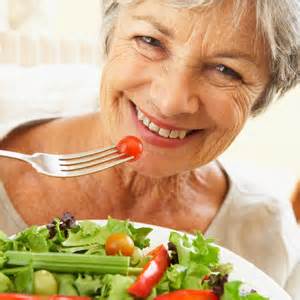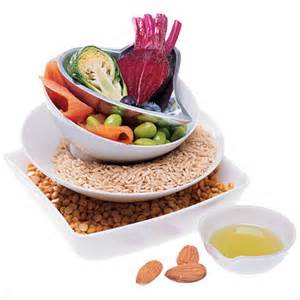Geriatric Nutrition:Foods That Promote Senior Wellness
As aging loved ones grow older, their nutritional needs change, metabolism slows down, bodies need different amounts of calories, vitamins, and minerals. When older adults have health issues, then it makes it even more difficult to meet their changing nutritional needs.

Eat for Your Health
When caring for an aging adult, it is important to recognize that eating a wholesome, well-balanced diet is vital to staying healthy. It may be the first line of defense in preventing illnesses or reducing the risk of diseases such as bone loss, some cancers, type 2 diabetes and heart disease.
Bones, muscles, cells and organs all need water, carbohydrates, fats, protein, vitamins and minerals. Healthy food contains a good supply of these components that feed our bodies and keep them healthy and strong.
According to the National Institute on Aging, older adults should supplement with Vitamin D, Vitamin B6, Vitamin B12 and folate. Most of these essential vitamins can be taken through eating the correct foods. But for those adults who have a difficult time eating all the correct amounts and varieties of food, supplements would be needed.
“You are what you eat”
Our bodies really are made up of what we put into them. It doesn’t matter our age, eating well makes a huge difference in our health, how we look and feel and our overall well-being.
Elders do not need as many calories as when they were younger. They tend to have less muscle mass, requiring less calories needed to maintain their weight. And seniors also have slower metabolisms, so it takes them longer to burn the calories that they consume through their daily activities.
Therefore, when eating smaller portions, it is important to pack those meals full of nutrients. While processed foods may be more convenient, seniors should rely more on unprocessed foods as they usually contain more nutrients and less fat, added sugar and sodium.

The Menu
To keep meals interesting and nourishing, encourage seniors to eat more fruits and vegetables by filling plates with colorful foods such as dark leafy greens, carrots, sweet potatoes, squash, lentils and beans. While variety is good, there are specific foods that are excellent staples for a senior diet.
- Oatmeal and eggs. Oatmeal is full of fiber and can fight against heart disease. Eggs are packed with vitamins and minerals. Both foods are soft and easy to eat.
- Yogurt is loaded with vitamins and calcium which is needed to prevent osteoporosis.
- Blueberries and apples – antioxidants and vitamins.
- Fish and chicken, which are low in fat and high in protein.
- Broccoli, sweet potatoes and squash are loaded with vitamins.
- Soy and rice – helps with bone health and a complex carbohydrate.
- Dark chocolate in moderation can boost your good cholesterol and lower blood pressure.
It’s always a good idea to check with your elderly parent’s doctor before making any changes to their diet.
All this talk about food is making me hungry! Let’s put on our aprons and whip up something good!
If you are looking for help with taking care of an aging loved one, contact Luba Services, Inc. Our qualified and compassionate caregivers can help with grocery shopping, fixing nutritious meals, and assisting with any other activities of daily living.



